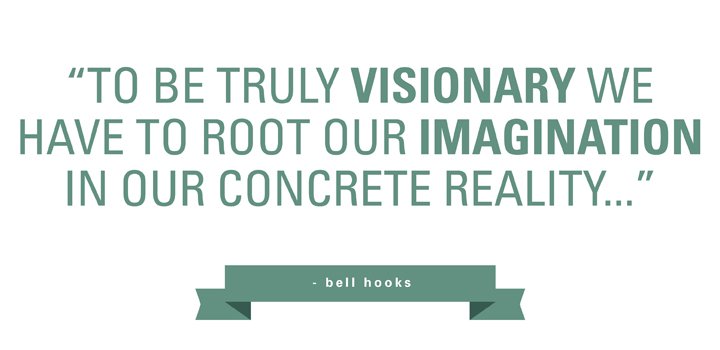Theoretical Perspectives On Sociological Thinking: Conflict Theory

Image Source
From numerous points of view, conflict theory is the inverse of functionalism yet incidentally additionally became out of the Industrial Revolution, because of Karl Marx and his partner, Friedrich Engels. While preservationist scholarly people dreaded the mass savagery coming about because of industrialization, Marx and Engels lamented the conditions they felt were in charge of the mass viciousness and the capitalist society they felt was in charge of these conditions.
Rather than dreading the breakdown of social request that mass savagery spoke to, they felt that progressive brutality was expected to dispense with capitalism and the neediness and wretchedness they saw as its unavoidable outcomes. As per Marx and Engels, each general public is separated into two classes in light of the responsibility for methods for generation. In a capitalist society, the bourgeoisie, or decision class, possesses the methods for creation, while the proletariat, or common laborers, does not claim the methods for generation and rather is abused and misused by the bourgeoisie.
This distinction makes a programmed conflict of interests between the two gatherings. Basically, the bourgeoisie is occupied with keeping up its position at the highest point of society, while the proletariat's advantage lies in ascending from the base and ousting the bourgeoisie to make a libertarian culture.
In a capitalist society, Marx and Engels composed, unrest is inescapable in view of basic inconsistencies emerging from the very idea of capitalism. Since benefit is the fundamental objective of capitalism, the bourgeoisie's advantage lies in expanding benefit. To do as such, capitalists attempt to keep compensation as low as would be prudent and to spend as meager cash as conceivable on working conditions.
This focal certainty of capitalism, said Marx and Engels, in the long run prompts the ascent of class cognizance, or an attention to the explanations behind their persecution, among specialists. Their class cognizance thusly drives them to rebel against the bourgeoisie to take out the mistreatment and abuse they endure.
Marx and Engels' perspective of conflict emerging from unequal positions held by individuals from society lies at the heart of the present conflict theory. This theory underscores that distinctive gatherings in the public arena have diverse interests originating from their diverse social positions. These diverse interests thusly prompt distinctive perspectives on imperative social issues.

Image Source
A few adaptations of the theory root conflict in divisions in view of race and ethnicity, sex, and other such contrasts, while different renditions take after Marx and Engels in observing conflict emerging out of various positions in the monetary structure. By and large, nonetheless, conflict theory underlines that the different parts of society add to continuous disparity, though functionalist theory, as we have seen, stresses that they add to the progressing strength of society.
Along these lines while functionalist theory stresses the advantages of the different parts of society for progressing social strength, conflict theory favors social change to diminish imbalance.
Feminist theory has created in sociology and different orders since the 1970s and for our motivations will be viewed as a particular use of conflict theory. For this situation, the conflict concerns sex imbalance instead of the class disparity accentuated by Marx and Engels. Albeit numerous varieties of feminist theory exist, they all stress that society is loaded with sexual orientation disparity to such an extent that ladies are the subordinate sex in many measurements of social, political, and monetary life.
Liberal feminists see sex imbalance as emerging out of sexual orientation contrasts in socialization, while Marxist feminists say that this disparity is a consequence of the ascent of capitalism, which made ladies subject to men for monetary help. Then again, radical feminists see sex disparity as present in all social orders, not simply capitalist ones.
Conflict theory in its different structures sees social issues as emerging from society's inborn imbalance. Contingent upon which form of conflict theory is being viewed as, the imbalance adding to social issues depends on social class, race and ethnicity, sexual orientation, or some other measurement of society's chain of command. Since any of these disparities speaks to a key blemish in the public arena, conflict theory accept that principal social change is expected to address society's numerous social issues.

Image Source

Reference:
A Primer on Social Problems
By: Steven E. Barkan
Congratulations @juvyjabian! You have completed some achievement on Steemit and have been rewarded with new badge(s) :
Click on any badge to view your own Board of Honor on SteemitBoard.
For more information about SteemitBoard, click here
If you no longer want to receive notifications, reply to this comment with the word
STOPIn the midst of the onslaught of capitalism and the hedonistic lifestyles that sweep across in the world, still the ideology of Marxism has its place in society? Communist Chinese are ideologically, but in economic life they are capitalists.
Thanks a lot @juvyjabian to sharing your great opinion...
Could be, since Marxism has four phases feudalism, capitalism, socialism and communism. These are all present in the current days but with a twist of something to cover its real face.
Many opinions, Marxism is now only a study material in the academic world because it is no longer popular to be an ideology. There are several groups of people wanting to apply it, but the country with the ideology of marxism has collapsed.
Nice post, just followed you please be kind enough to do same thanks @juvyjabian
Sorry
It's very intellectually written
I am not able to understand it clearly, its very difficult to digest
Very high philosophy 😓😓😓😓
Dont worry, their's no examination for this :)
nice
Thanks
nice
Thanks